#hao du
Text
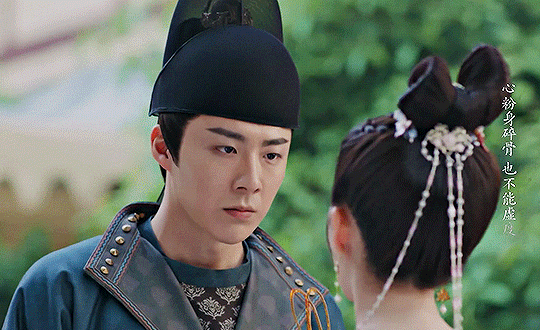
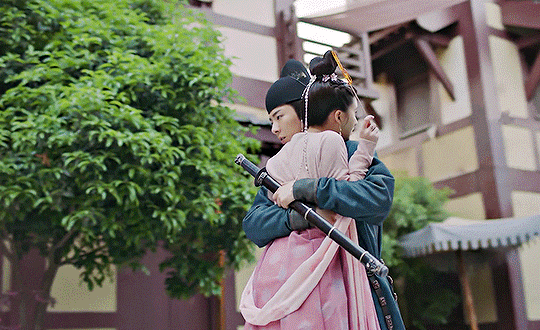
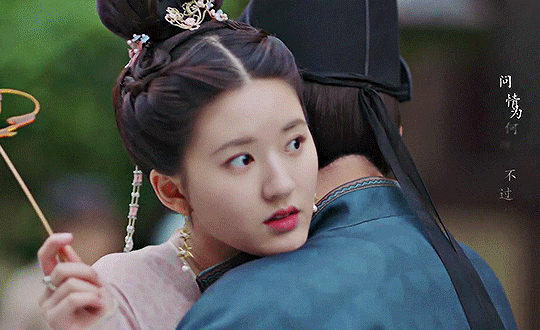
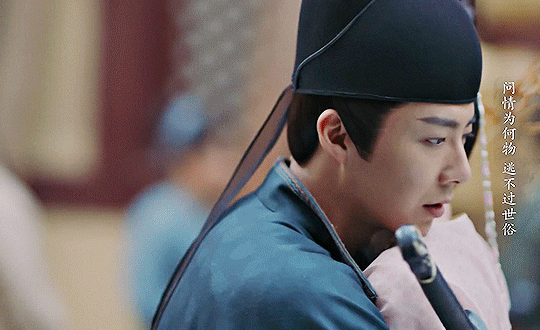
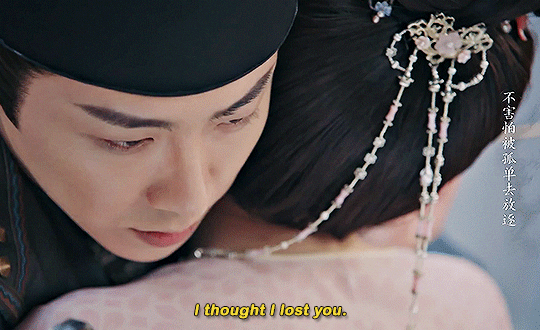
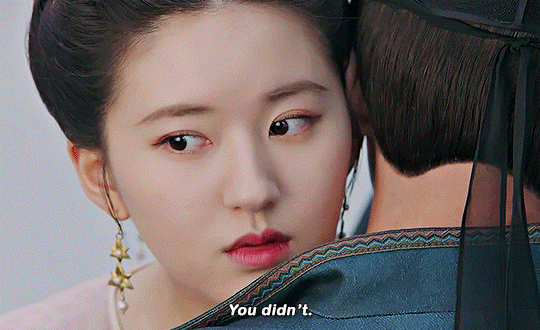
Hao Du and Li Leyan
The Long Ballad 长歌行 (2021) | Episode 29
#the long ballad#hao du#li leyan#cdrama#liu yuning#zhao lusi#zhao lu si#liu yu ning#gif set#gifs#so excited to see them pair up again as the main leads in the legend of jewelry
133 notes
·
View notes
Text
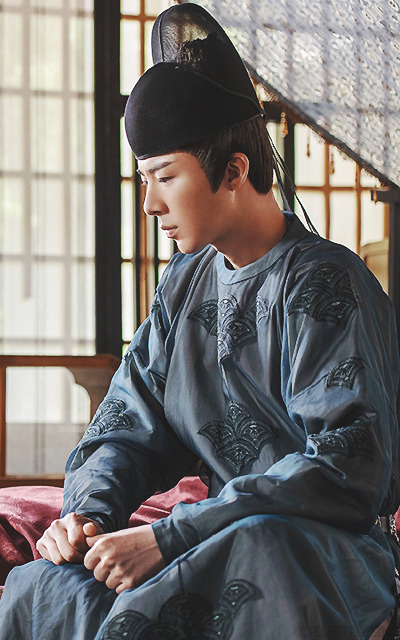
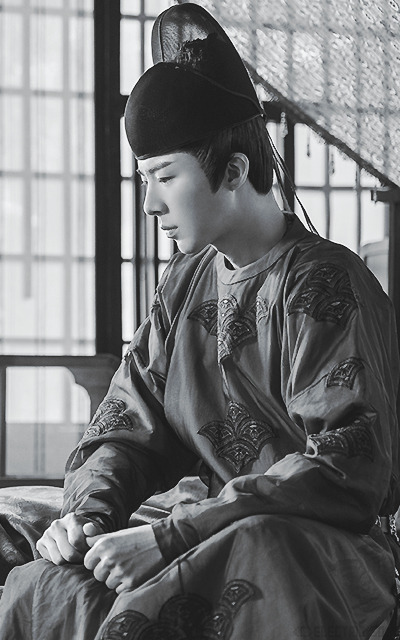
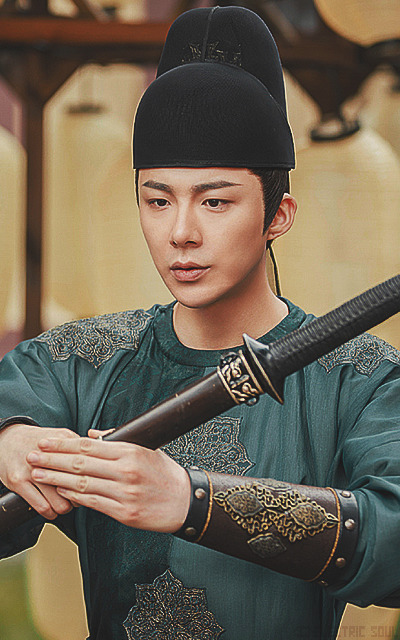
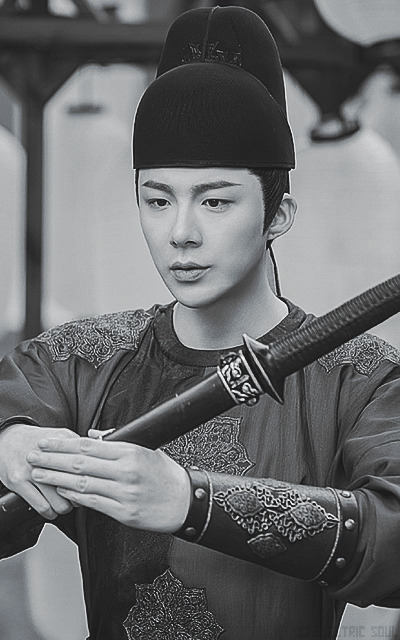
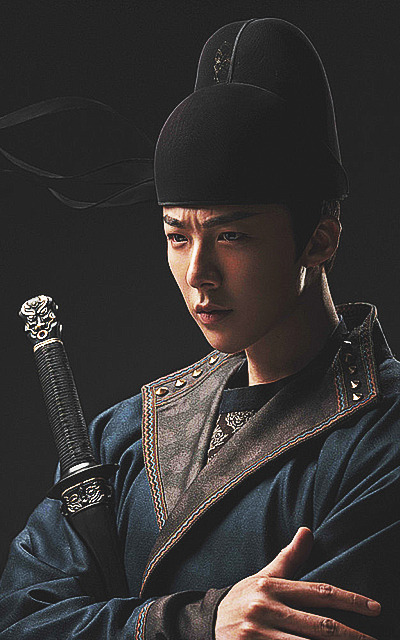
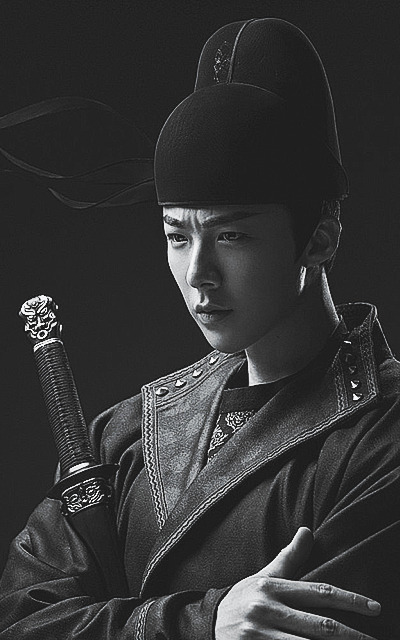

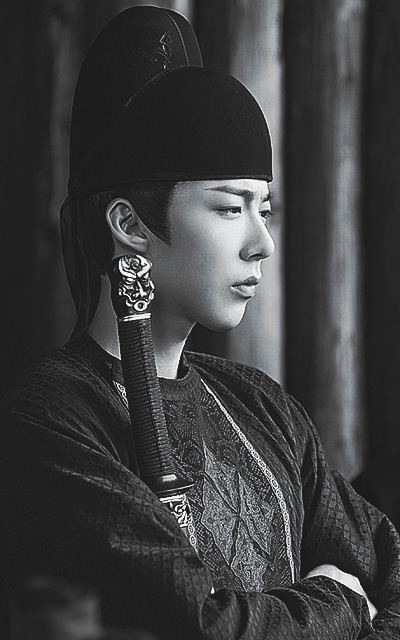
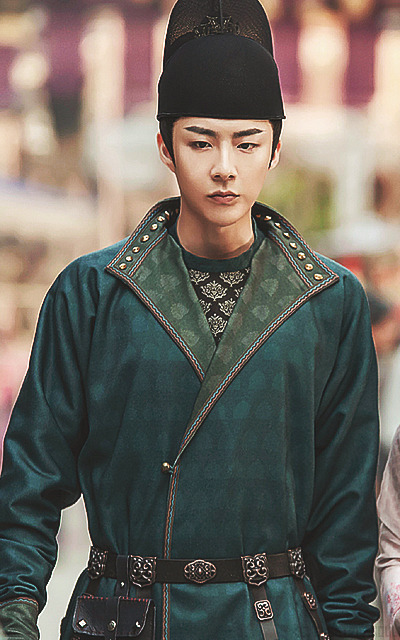
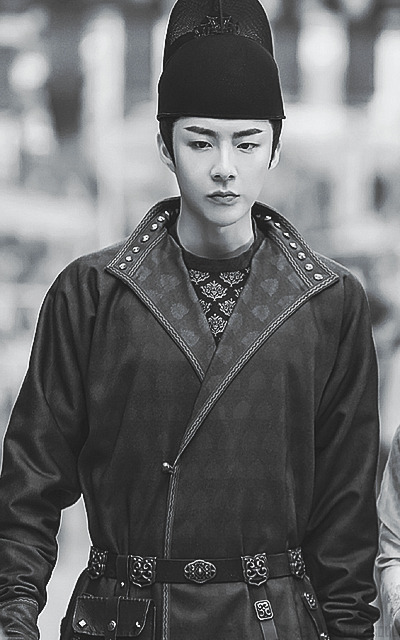
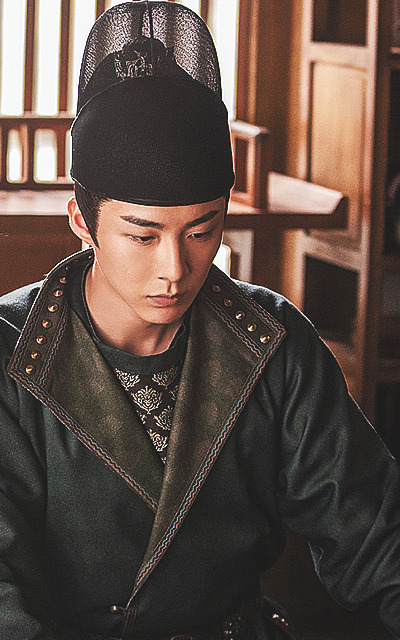

LIU YUNING (刘宇宁) as Hao Du
in The Long Ballad (长歌行), 2021
#liu yuning#liu yuning avatars#cdrama#the long ballad#chang ge xing#hao du#刘宇宁#长歌行#chinese fc#period fc
44 notes
·
View notes
Text
Massive props to @krispyllamasweets for sharing the YouTube playlist of the Hao Du/Leyan cut of The Long Ballad with me! This is what I really wanted all along, and I'm clearly not the only one!
I've pretty much watched the entire drama now, although I got really impatient after episode 40 or so and skipped most of the non-Hao Du/Leyan scenes.
Even though I'd seen some clips of their story on YouTube before, I still legit teared up in episode 42 when he fights for her and they finally get together. Those scenes were totally earned - they went through so much, changed, and grew. Honestly, they're the only interesting thing about this drama. I totally get why Liu Yuning became more popular because of this role, and why people are so stoked to see him and Zhao Lusi film another drama. She's not my favourite actress out there, but their chemistry is undeniably off the charts. I hope they can pull it off again in their new project.
69 notes
·
View notes
Text

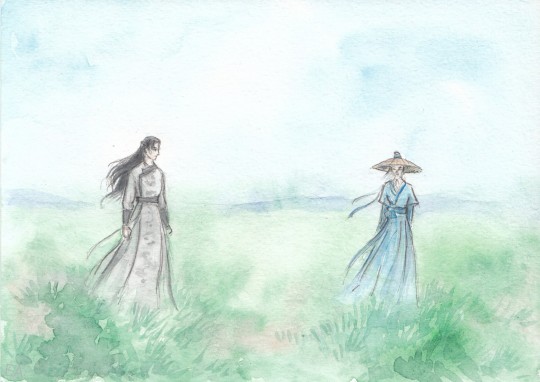
#the long ballad#chang ge xing#cdrama#fanart#illustrations#cdramaart#li changge#ashile sun#hao du#li leyan#长歌行
41 notes
·
View notes
Text
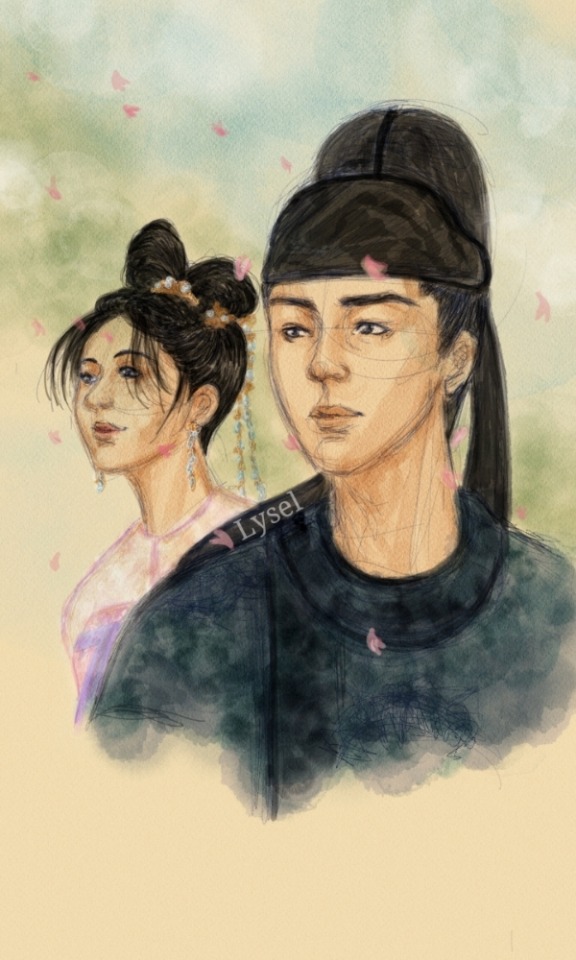
🐺🐇
LèYan and Hào Du, I miss them!
...☕?/commission
#the long ballad#li leyan#hao du#长歌行#zhao lusi#liu yuning#lyselkatzcreations#fanart#cdrama#cnovelartreblogs
34 notes
·
View notes
Photo

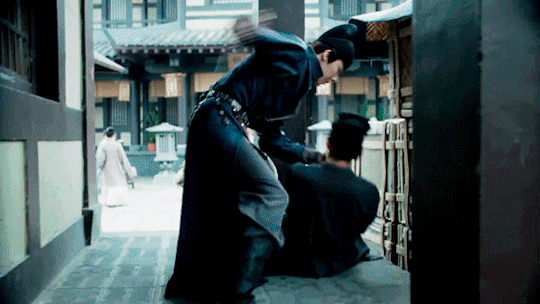


长歌行│The Long Ballad (2021)
ep. 8 (1/?)
Hao Du
32 notes
·
View notes
Photo
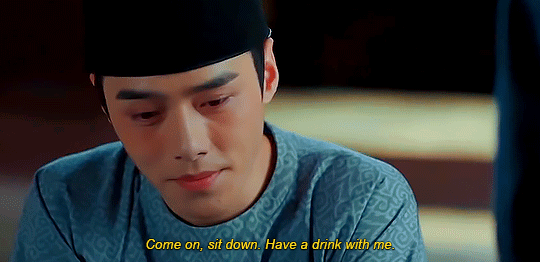
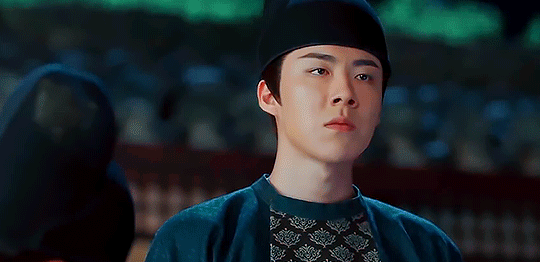





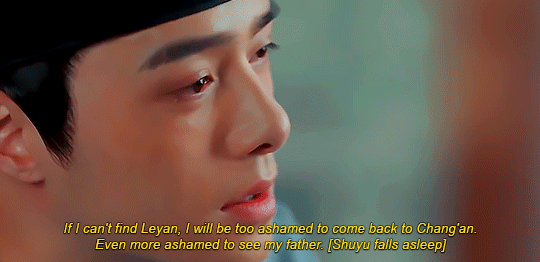

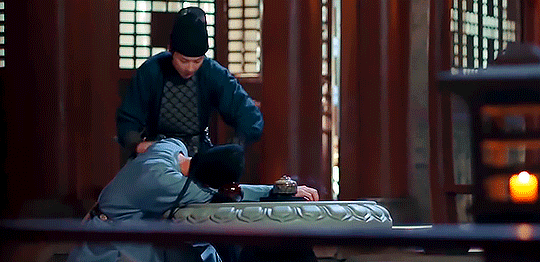
local emotionally constipated man with daddy issues experiences several emotions in a row, is unhappy about it, more at 11
112 notes
·
View notes
Photo

Hao Du is winning. It’s not a competition, but he is winning.
#The Long Ballad#long ballad#hao du#screenshot edit#memery from the great long ballad rewatch#made for the disco
23 notes
·
View notes
Text
GUH, rewatching The Long Ballad and having lots of thoughts about the Khatun and her loyal bodyguard, and how they're such interesting dark parallels to Li Leyan and Hao Du.
What if Leyan did end up getting married off to the Ashile tribe, with only some maidservants and a bodyguard from home, and an uncaring uncle as emperor? What kind of a person would she have matured into, abandoned by her people - would she have been able to gain her confidence like in the show, or become embittered and manipulative instead? What kind of a husband would She'er have been to her, with his inferiority complex, at the whims of other people's power plays - or would he have been inspired to be better? What kind of place in the Ashile would Hao Du have taken, ever his princess's loyal servant, with vicious impulses a little less checked? Would the Khatun see this little princess as a mirror of her former self and feel compelled to protect her, or as a pawn to bend to her will in service of restoring the Sui?
I'm super interested in this AU but I have no idea where it would go. If anyone has written or ends up writing it, I'd really love to read it!
5 notes
·
View notes
Photo

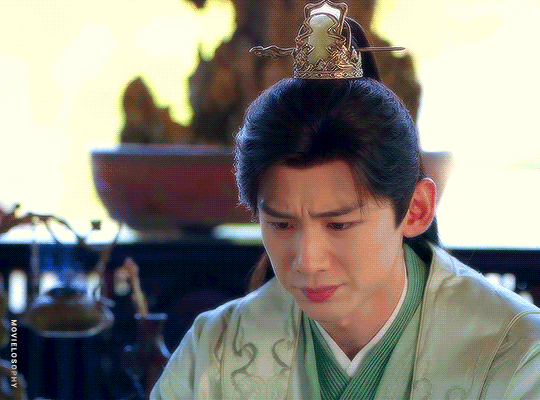
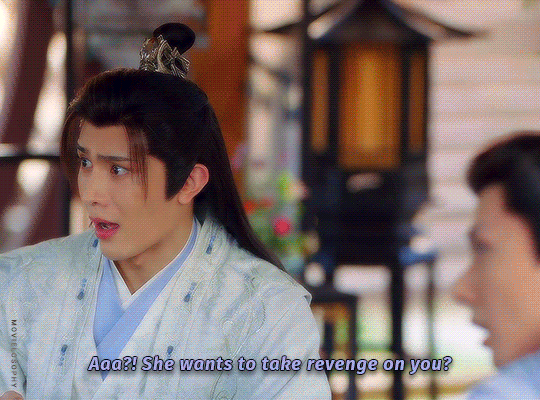
Destined | She wants me.
#AHAHAHAHHAHAHAHAHAHHAHAHA#i'm only on 3rd ep but i love this series already#three idiots#destined#Chang Feng Du#cdrama#bai jing ting#character: gu jiu si#Nie Zi Hao#character: chen xun#Terry Guo#character: yang wen chang#长风渡#長風渡
104 notes
·
View notes
Text
i love it when infamously cold and heartless men that have people cowering in fear from a single glare fall in love and suddenly they’re smiling 24/7 and following their wives around hanging on their every word
#this post is about dongfang qingcang (lbfad) and hao du (long ballad) do not lose the plot#carmen.txt#love between fairy and devil#long ballad
77 notes
·
View notes
Text


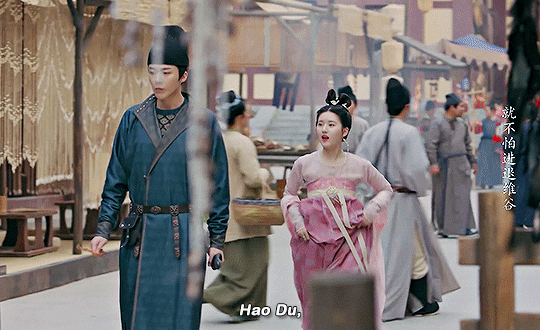

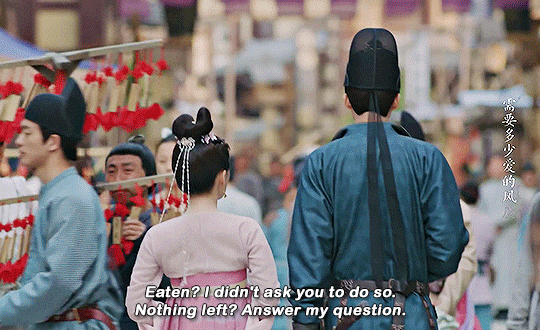
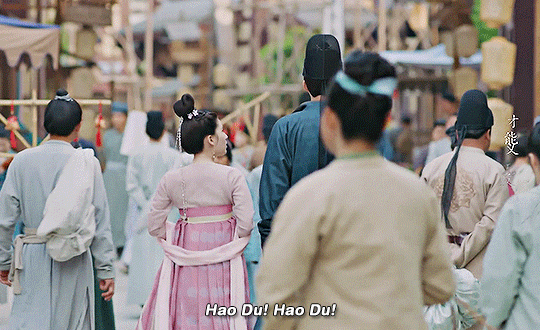
Hao Du and Li Leyan
The Long Ballad 长歌行 (2021) | Episode 29
#the long ballad#hao du#li leyan#cdrama#长歌行#liu yuning#zhao lusi#gif set#gifs#zhao lu si#liu yu ning#the height difference
137 notes
·
View notes
Text



du siying and tang qi shot by zeng wu for the inaugural issue of hao magazine
141 notes
·
View notes
Text

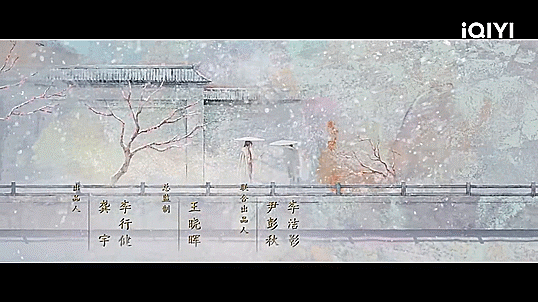
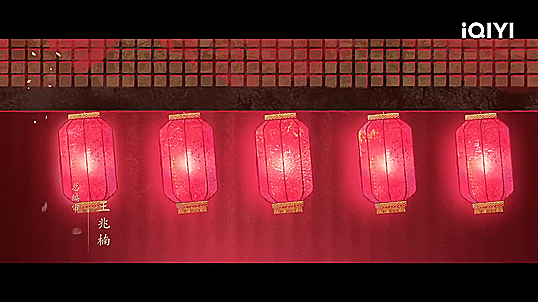

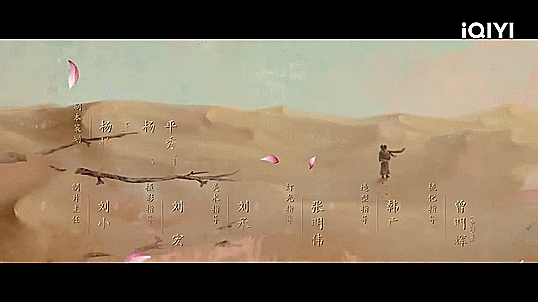

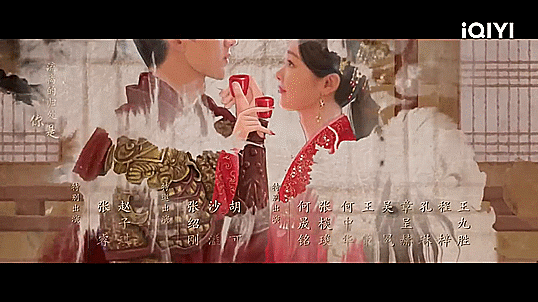

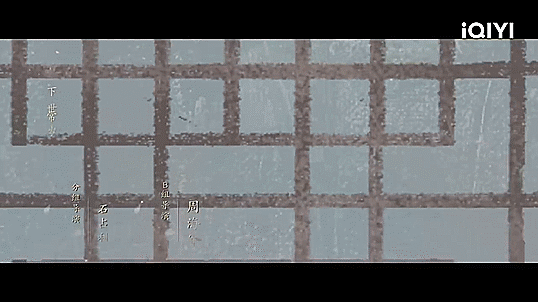
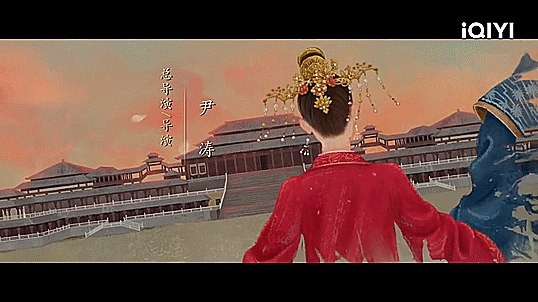
Cdrama: Destined (2023)
Gifs of Intro of cdrama "Destined"
[Sub Español] El Paso del Viento Largo Capítulo 01 | Bai Jingting,Song Yi | Destined | iQIYI Spanish
Watch this video on Youtube: https://www.youtube.com/watch?v=oGC4yAN1BAU
#Destined#长风渡#Chang Feng Du#長風渡#2023#CCTV#iQiyi#cdrama#chinese drama#youtube#first episode#1st episode#Bai Jing Ting#Song Yi#Liu Xue Yi#Zhang Hao Wei#Ray Chang#Zhao Zi Qi#Sha Yi#Hu Ke
17 notes
·
View notes
Text

Till the end of the moon
Year : 2023 | Country : CN | Nb of episodes: 40
My rate: 9/10
Synopsis :
In an era when demons have dominion over cultivators and mortals, the cultivator elders believe it is imperative to send someone back in time to discover the origin of the demon lord and prevent his resurrection.
Li Su Su accepts the mission and assumes the identity of mortal Ye Xi Wu, the second daughter of General Ye. She's married to Tantai Jin, the captive prince and future demon lord, and is determined to destroy him, aware that in the future he will come to massacre many. But as witness to Tantai Jin's past life and rise to power, an unexpected tale emerges, one complicating her quest.
Main cast :
Luo Yun Xi as Tantai Jin/ Cang Jiu Min/ Ming Ye
Bai Lu as Li Su Su/ Ye Xi Wu/ Sang Jiu
Chen Du Ling as Ye Bing Chang/ Mo Nyu/ Tian Huan
Deng Wei as Xiao Lin/ Gonye Jiwu/ Sang You
Sun Zhen Ni as Pian Ran
Eddy Geng as Ye Qing Yu
Li Jia Hao as Nian Bai Yu
My thoughts on this drama :
It it rated 9/10 because of the frustration…. At the Chinese governement's sh*tty censorship, again! They had to cut so many scenes (important ones) for it to be allowed to air, that we ended up with some extremely cluncky episodes toward the end of the show. Otherwise, this is a bit fat 10/10! I followed it upon release, each day, for weeks, with monstrous cliffhangers and all! It is close to perfection. The cast, the costumes, the music, the scenery, the special effects, the story, the acting, EVERYTHING! It has it all: smiles and tears, laughter and anger, life and death, love and tragedy.... It had been so long since I was that taken by a series. I can only recommend it 1000%, this drama has become a real reference for the Xianxia genre.
A Favorite ?
YES
#till the end of the moon#cdrama#xianxia#luo yun xi#bai lu#epic#chen du ling#deng wei#sun zhenni#eddy geng#li jia hao#just epic
9 notes
·
View notes
Text
Love and Redemption – Bailin
Behold! A meta about Bailin from Love and Redemption, if there’s anyone interested. It’s quite long, so be warned...
Many thanks to my dear @nieninque-nyerea for huge help with the translation from my mother tongue - I would never have the mental strength to do it by my self!
Bailin
Bailin is a complicated character... and that's the reason why it's so sad that all opinions about him are so simplified and can be summed up in three words "he's the worst". Because he isn't... and at the same time, yes, he definitely is. As you can see, the situation is complicated. It's honestly quite surprising how much people want to simplify his actions and character, especially considering the complex psyche of the main trio (or quartet, depending on viewer's philosophy) which makes the whole story so interesting, compelling and surprising (with a help of the wonderful secondary characters, but shh :)). I guess human desire for simple, black and white answers is our greatest superpower…
I would like to start with a small polemic about whether Bailin is a villain. I realize I'm being a bit loose with the terminology here, but I'd argue that he is not a villain. "What?" I hear the indignant voice of the internet – as if we didn't have enough evidence that in the end it was all his fault! (And there really is plenty of evidence.) If I may, I would call Bailin more of an antagonist, someone who is in opposition to the hero – if we consider Si Feng the hero of the story, then completely deliberately, if the hero is Xuan Ji/Rahu Ketu, then Bailin is in opposition which he himself is hardly aware of, or at least does not admit to. As horrible as Bailin's actions are (and they are), what's really interesting are his motivations. So, enough of the quibble – what is really Bailin's deal?
The answer is very surprising in its simplicity – it's all about doing good. That's right - Bailin is unable to see his actions as problematic, let alone evil, because he firmly believes that whatever he does, he is acting in the service of what is „right“. Terrible is the surprise at the end of the story for him and his subjects, who got dragged along by the unbreakable strength of his conviction that what they are doing is right. (Flying Snake is the only exception, and even his dilemma it is not about the goodness of Heavenly Realm, but about the choice of duty vs friends.) It is not unusual in stories that even a completely unadulterated villain, let alone an antagonist, is convinced of the rightness of his behavior and the hero is primary someone who ignores his motivations and constantly stands in his way, and is therefore in the villain's/antagonist's interest to get rid of them. (We could include the relationship between Bailin and Si Feng into this category.) It is considerably less common when the antagonist is not aware of his opposition to the hero, and is even convinced on fundemental level that everything he does is only helping the hero - even if it‘s the very disintegration of hero's personality. And that is exactly the relationship between Bailin and Xuan Ji/Rahu Ketu. When one looks back at all of Bailin's actions, crimes, and even wilful acts it's actually surprising that his plan isn't more sinister and his motivations far darker. After all, Bailin really wants victory over the enemy (in his case, the victory of Heavenly Realm over demons), and in doing so he does not stand out from the ranks of other characters on both sides of the conflict. What makes Bailin truly unique is the radicality and disproportionality of his solutions, which often not only worsen the entire problem, but in several cases directly cause a brand new one. And all of this happens while Bailin is fully convinced of his truth, his rationality and the infallibility of his own decisions.
And that brings us to what is Bailin really like. Bailin does not have to be inherently evil to be destructive - both to himself and to others. He only needs two characteristics to do this, and both can be summed up in one problem - the lack of (appropriate) self-reflection.
These two characteristics are paranoia and lying to himself (especially in emotional matters).
Bailin belongs to that group of people who believe there is someone after them. Who? Everyone, anyone. The world is full of tricks and traps, you can't trust anyone, except maybe those you have authority over, and even there you're on a thin ice. You can't rely on anyone - and trusting someone emotionally is out of the question! It is always necessary to count on the worst possibility imaginable and look for the worst conceivable motive in others. Bailin's decisions in their monstrosity unsurprisingly match this mindset. Why wouldn't he decide for the worst possible solution, when he is convinced that only his own alertness and preparedness prevent others from using similar weapon against him?
To paranoia is strongly linked lying to oneself. In the world as Bailin sees it, is no place for weakness, hesitation, trust, let alone feelings. All of these things make Bailin (in his mind) an easy prey. Feelings most of all – for him to have feelings for anyone would be a tragedy indeed! It is necessary to fight against these things, or rather to deny their existence, not only in front of others, but above all in front of yourself. All unpleasant feelings and unexpected emotions can be rationalized! Woe be him who tries to impose feelings and emotions on you while you are working so hard for the good of Heavenly Realm! The problem is that Bailin is a good liar - he manages to manipulate a number of characters throughout the story, but he doesn't manipulate anyone better than himself.
Such relationship with reality can be deadly enough on itself, but the circumstances of Bailin's life take it to a truly terrifying extreme. Bailin is no nobody, he is the king of Heavenly Realm (I don't know the exact title), and the ongoing war with demons directly affects him. The very necessity of winning would justify a lot in Bailin's eyes. And into that comes Rahu Ketu and the much-hated feelings and emotions. Bailin does not understand himself - or, more precisely, does not want to understand himself. He is in a complicated situation and he knows only two things for sure. First: there is a war that is not going well, and he must win it – but it is the demons who hold all the triumphs in the form of their strongest general. In order for Bailin to win, he will have to get rid of this obstacle. Second: It is the same demon general that he must get rid of, without whom he cannot imagine his life. But Bailin doesn't like to think about that.
Bailin's paranoia does not allow him to accept or even imagine any other solution to their situation than victory, preferably an absolute victory – the enemy cannot be trusted, just as one cannot trust any peace designs, even should the enemy party come up with them. If Bailin doesn't attack first, in the fastest and smartest way, they will definitely lose! Of course, he can't even trust that „friend“ who sits and drinks with him so often, Bailin mustn't be fooled! Although he might wish they could sit together like this forever...
The solution Bailin will choose is a truly horrifying display of rationalized paranoia.
He is not committing a war crime, he is just doing what is necessary for Heavenly Realm to win! (Regarding the war crime: I'm sure poisoning a peace messenger would fall in this category. And yes, Bailin didn't know what message Rahu Ketu carried, but he would have known if he had listened to him. But he won't because he convinced himself such thing is not possible – that it will be either his solution or his loss. But even if we give him the benefit if doubt for not knowing, the attack was still made by trickery during friendly negotiation.)
And it's not like he wants to keep Rahu Ketu with him at all times, so he can never leave him, faithful and stripped of any identity that could possibly cause them to become enemies again! No, he is merely providing a weapon for Heavenly Realm which they never had and that will guarantee their victory!
And he doesn't at all take revenge on all the demons (including Rahu Ketu) when he orders God of War to slaughter her own people and her king. No, he's just making sure the rebellion will never happen again! So what – God of War will never even remember who she is, or realize who she killed, so why would it matter???
All altruistic and selfless reasons! In one move Bailin won the war and got rid of all his enemies. How could that be wrong??
In the same way it is later absolutely necessary that Xuan Ji does not regain her senses - not because she could then fall in love and forever leave Bailin for Si Feng, but because she could then become terrible, evil (or rather rightfully pissed off) demon and destroy the whole world! And if that strategy fails, then it's necessary to get rid of Xuan Ji, Si Feng and Jade Cup, because evil demon, war, and the destruction of the world are all serious problems - they don't necessarily have anything to do with the fact that Bailin really does not want to meet Rahu Ketu again and face him after all the things he had done to him.
From Bailin's point of view all of his decisions seem reasonable and sound. Logical. As if there really was nothing else to do. Of course, the problem is that Bailin's perception of the world is anything but reasonable and sound. It's paranoid and distorted – the demons are asking for peace after all, Rahu Ketu's feelings are sincere and he's not plotting any treachery or attack, Si Feng isn't after him... we could go on. Bailin can pass off his paranoia as rationality only by the force of his will and his own lies. But he indeed has a strong will and had believed his own lies a long time ago.
And so finally, Bailin stands before us as we know him - in his own eyes, and in the eyes of many, the paragon of goodness, purity and fighting for the right thing, especially in a world where the enemy could be everywhere, even (or maybe especially?) among one's closest people. Bailin shines so brightly precisely because he firmly believes that what he is doing is right. He relies on his own abilities and his own judgment, because his suspiciousness does not allow him to trust the judgment and motives of others. He is controlling, dominating even , because deep down he fears abandonment (without acknowledging it) and he is not able in front of himself to call love by its real name - he'd rather dress it up in a guise of usefulness and calculation, because what he fears most of all is to be loved only to be betrayed. If that should be the case, isn't it less painful to betray first?
Rahu Ketu is the person Bailin loves in all his complexity, including the potential danger he represents. God of War is the same beloved person, robbed of everything that could threaten Bailin – loyalty to the enemy, knowledge of her past, awareness of her own self; she is ideal because she is Bailin's and she cannot leave or betray him – she would be leaving and betraying her only identity. (Or rather Bailin thinks she can't, but life sucks...) Xuan Ji, on the other hand, is for Bailin the worst possible version of the same person: she's another erasure, a desperate attempt to recreate the person God of War was before her rebellion. But this time she doesn't know or love Bailin and her will is her own. She is not burdened by Rahu Ketu's consciousness, and yet Bailin has to watch her "worst" instincts win for nine lifetimes. When the tenth life comes, Bailin panics and heads down to Earth to get her back under his control before it's too late. But alas, it's too late already – while he wasn't with Xuan Ji, someone else had been... Bailin has hurt all three versions of his beloved person – denying or trying to deny each of them the right to freedom, an independent life and, what is most painfull, their own identity. Rahu Ketu states many times that he is not Xuan Ji and wants nothing to do with her, even though Xuan Ji undoubtedly is a part of him – but it's the part that was forced on him, that he was bound into, and for that Bailin can't be so easily forgiven... And Bailin, high above everyone in his white clouds but unable to admit the truth, says: "I didn't do anything wrong, just what was necessary!"
So what's the conclusion? Is Bailin really "the worst"? As I said in the beginning – he is, as well as he isn't… but for me Bailin is primarily tragic figure. He is definitely the person whose decision will negatively affect the largest number of people. His decisions are some of the worst. But his motivations... are surprisingly pure, although absolutely misguided. Bailin doesn't want to commit evil – he just hasn't realized that he is doing exactly that. What is worse – conscious malice or a mistaken belief in one's own sanctity, is up to everyone. Bailin's actions and their appalling utilitarianism cannot be very well defended, but I would find extenuating circumstances in his motivations.
And it's not only that - perhaps the most telling part is the end of Bailin's story. Because in the end Bailin submits and admits his fault. Yes, a higher up must appear - Bailin is too convinced that the world, as seen through his paranoia, is the real world so it is impossible for anyone but the ultimate authority to open his eyes - the most powerful one and the one with "the patent for the truth", the one in whose interest was Bailin convinced he has been acting. Metaphorically speaking, Bailin must cry out upwards: I did it all for You and for the sake of Heavenly Realm! And he must hear emperor's „no“ to find humility. But Bailin‘s humility is real - such humility can only exist in someone who was not only truly convinced that he was doing the right thing, but who also sincerely wanted to do the right thing. Bailin's humility is beautiful in its tragedy - although Bailin had a habit of listening mostly only to himself, his ego is not what matters the most to him. The prosperity of Heavenly Realm is what matters the most, so the knowledge of his own failure is therefore more painful to him than any punishment.
Simply put, Bailin has a beautiful “Am I a baddie?” moment, and the most tragic part of the whole situation is that this really is a brand new information for him. What should he do with himself now?
All that remains is to drink the offered cup, resigned to his fate.
It's a different punishment than voluntarily giving up one's powers – that was an acknowledgment of incompetence, of mistakes. I surrender that with which I have done much evil in the name of good. I'm giving up my powers because I can't no longer trust myself.
This is a different kind of punishment - it carries hope. It carries within itself a new chance to get it right.
Perhaps at the very end, Rahu Ketu isn't really asking for a punishment, but for a sign of trust - a sign of the biggest change Bailin will have to go through.
Will you drink? Will you relinquish the control, you've clung to, the one for which you've ruined so many lives? Because of which you ruined my life? Will you overcome your fear and walk with me into the unknown? I already know what it's like to lose control, what it's like to be tossed around by forces more powerful than yourself and don't even know your own name - will you dare? Can you surrender yourself to the world and the people in it with the faith that they won't hurt you?
Will you drink with me?
#love and redemption#love and redemption meta#cdrama#琉璃#Liu Li#Liu Li Mei Ren Sha#bailin#bailin dijun#hao chen#meta#rahu ketu#Lou Hou Ji Du#Star of Mosha#chu xuanji#xuan ji#yu sifeng#昊辰#柏麟#Bai Di#白帝#羅喉計都#褚璇玑
15 notes
·
View notes